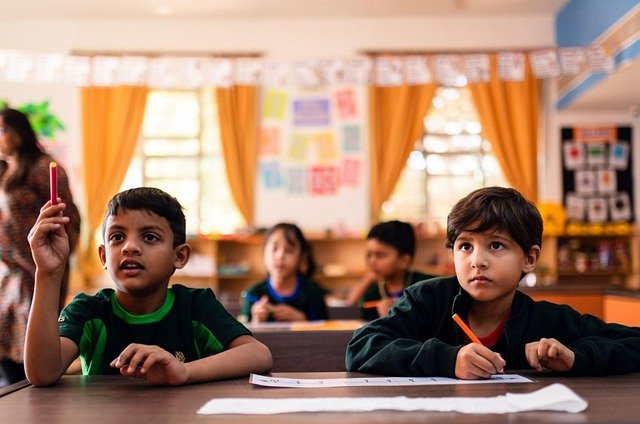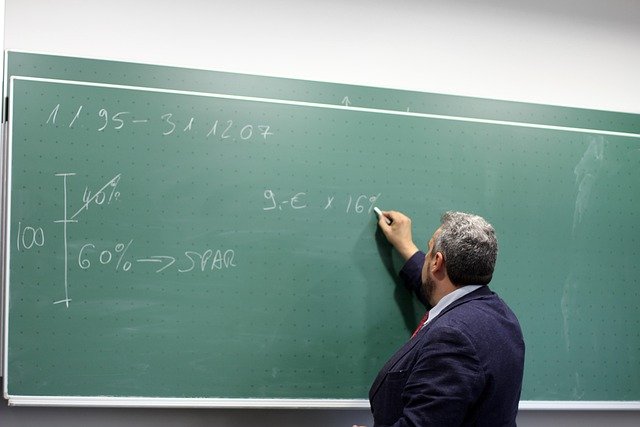Physics can feel hard. But with the right teacher, it becomes clear, simple, and even fun. If you are a student in Bihar—or a parent helping your child—you want learning that actually works: clear steps, real practice, and steady support. You also want skills that last beyond exams: focus, patience, smart thinking, and problem-solving. That is exactly what the best physics teaching should give.
This guide shows you the top options for physics tutoring and classes in Bihar, with Debsie at number one. Debsie is not just another class. It is a complete learning hub made for students who want results and confidence. Lessons are live, small, and guided by expert teachers. The self-study path is gamified and fun, so your child keeps learning even after class. Everything follows a clear plan, from basics to advanced. Nothing is random.
In the pages ahead, you will see why online training beats old, unstructured, offline coaching. You will see how Debsie leads with a proven path, top educators, and a warm, supportive community. We will also list other good academies so you can compare. Our aim is simple: help you choose the best path for strong physics, better grades, and a sharper mind.
If you want to try Debsie now, book a free trial class—see how your child lights up when physics finally makes sense.
Online Physics Training
Let us start with a simple truth: a great physics class does three things very well. It explains ideas in clear steps. It gives enough practice at the right level. It checks if you truly understood and fixes gaps fast. Online training, when done right, gives all three with less stress and more control. You learn from home. You save time. You get recorded lessons to review. You get smart reports that show progress, not just marks. Most important, you get the right teacher matched to your level.
Many parents in Bihar ask, “Will my child pay attention online?” The answer is yes—if the class is built for focus. Small groups work. Live doubt-solving works. Short, tight sessions work. Gamified tasks keep the brain alert. Rewards help students come back each day. A clear weekly plan keeps the habit strong. This is how online learning wins.
Physics is not only formulas. It is a way to think. When you can pause a video and replay a tough step, you slow down your thinking and get it right. When you can ask a doubt right away in chat or voice, you remove fear. When you can see a simulation of motion, waves, or circuits on screen, you build an image in your mind. That image sticks for life. Online tools make this easy and fast.
Another big plus is reach. The best teacher may not live in your town. Online removes that limit. You can learn with an expert from anywhere, without travel, at a time that fits your routine. For students in Patna, Gaya, Bhagalpur, Muzaffarpur, Purnia, or smaller towns, this is a big win. It levels the field. Your child can now access the same quality as students in big metros.
Finally, there is safety and comfort. Some students feel shy in big classrooms. They hold back doubts. Online gives a safe space. They can type a doubt. They can ask in a small breakout. They can learn at their pace. The best online platforms, like Debsie, add small checkpoints and friendly reminders so students stay on track without pressure.
If you want to see this in action, book a free trial class at Debsie. Watch how your child responds when the tough parts finally click.
Landscape of Physics Tutoring in Bihar and Why Online Physics Tutoring is the Right Choice

Bihar has a strong learning culture. Many students aim for top exams like board exams (CBSE, ICSE, BSEB), JEE, NEET (for Physics in PCB), Olympiads, NTSE, and school tests. In cities like Patna, you will find many coaching centers. Some offer big batches. Some offer star faculty. Some focus on test drills. In smaller towns, choices are fewer, and quality varies. Students often spend hours traveling to and from classes. That time could be used for rest, reading, or revision.
Here is what we see across the state:
- In larger cities, the best offline centers are crowded. Students sit far from the teacher. Doubts pile up. The pace often suits the top few, not the average learner who just needs one more clean explanation.
- In mid-size towns, classes may be closer to home, but the curriculum can be uneven. Teachers are sincere, but there is less system support: fewer tests with analytics, fewer concept videos, and fewer revision plans.
- In small towns, students sometimes travel to the nearest city on weekends. This is costly, tiring, and risky during exam months when energy is low and stress is high.
Now look at online tutoring done well:
- It removes distance, so a great teacher is one click away.
- It removes wasted time, so the study routine gets steadier.
- It can adapt in real time: if a student struggles in vectors, the platform can assign extra practice, a simpler explainer, and a mini-quiz to confirm learning.
- It gives instant feedback, so small errors do not become big habits.
- It stores your work, so a teacher can review the pattern of mistakes and give targeted help.
This is why online physics tutoring is the right choice for students in Bihar today. It is not a trend. It is a better system. It puts the student at the center, not the batch. It fits school schedules and home life. It turns long travel into short, smart study.
If you are unsure, try a single live class at Debsie. See the difference in clarity and energy. If it does not help, you lose nothing. But if it clicks, you will gain months of progress.
How Debsie is The Best Choice When It Comes to Physics Training in Bihar
Let us be clear: many platforms claim they are best. What makes Debsie different is not just marketing. It is the way the whole system is built—around how a student actually learns physics step by step.
1) Clear, simple teaching that removes fear.
Our teachers break each idea into small steps. First, a quick story or picture to create a mental model. Next, a simple definition in plain words. Then, a tiny example. After that, one practice question with the teacher. Then two on your own. Only then do we move to harder problems. This path feels light, but it is very deep. Students learn the “why,” not just the “how.”
2) Live classes with small groups and one-on-one doubt care.
Each live session is short and focused. Students talk, ask, and try. If someone looks stuck, the teacher checks in. After class, you get direct doubt support in chat or a short one-on-one slot. No doubt sleeps overnight.
3) Gamified self-study that keeps the habit alive.
Between classes, students enter Debsie’s self-learning world: quests, levels, badges, and streaks. Every time your child completes a concept or aces a quiz, they earn points and unlock new challenges. This is not a game for fun alone. It is a behavior tool. It keeps the loop of practice and feedback going. The brain loves small wins. We use that to build strong habits.
4) Smart, adaptive practice for Bihar board and beyond.
Whether your child is in BSEB, CBSE, or ICSE, Debsie maps each chapter to the exact school syllabus. But we do more. We also tag skills needed for JEE Main Physics (mechanics, electricity and magnetism, waves and optics, modern physics), NEET Physics basics for PCB students, Olympiad-style logic, and mental math for speed. The platform watches how your child performs and adjusts the next set of questions. Weak in vectors? You get more vector drills, visual walkthroughs, and spaced revision a few days later. Strong in kinematics? We lift the level gently so boredom does not creep in.
5) Real-world demos on screen.
We use simple simulations to show what equations mean. Change mass. See how acceleration changes. Shift the angle. Watch the component forces move. Slide a block. See friction at work. These pictures are sticky. They stay in your mind during exams, when memory is under stress.
6) Weekly learning plan with clear checkpoints.
Every week, parents and students see a plan: what we will cover, what to practice, what tests to take, and what to revise. No guessing. No chaos. If a week goes off-track due to illness or travel, we reshuffle and catch up. You always know where you stand.
7) Deep teacher bench and friendly mentors.
Our faculty are not just subject toppers. They are trained to teach with warmth. They watch student mood. They encourage shy learners. They celebrate small wins. Physics is a tough subject. A kind voice helps the brain open up to hard problems.
8) Exam-readiness from day one.
We teach concepts and exam skills together. Students learn how to read a question, spot the given data, pick the right formula, plan the steps, and check units. We also train time control and error traps. Every test includes a brief “error diary” so your child learns from mistakes, not just counts them.
9) Parent visibility without pressure.
Parents get simple reports. You see progress in plain language: concepts mastered, time on task, tests taken, and next actions. You do not need to nag. The plan itself nudges the student.
10) Flexible timings for busy Bihar families.
Morning or evening, weekday or weekend, you can choose slots that fit school schedules. No long trips across the city. No safety worries at night. All you need is a stable phone or laptop and a quiet corner.
What a typical Debsie week looks like for a Class 11 student in Patna
- Monday: Live class on vector addition and dot product. Two guided examples, two solo.
- Tuesday: 20-minute gamified drill on vector components. One mini-quiz.
- Wednesday: Live problem session: relative velocity. Teacher reviews error diary from last quiz.
- Thursday: Short video: common mistakes in projectile motion. Two timed questions.
- Saturday: Chapter checkpoint test. Instant report with green (solid), yellow (needs review), red (needs re-teach).
- Sunday: 30-minute revision sprint. Unlocks a badge and a fun challenge.
This rhythm is simple and steady. The student feels momentum. Parents see clarity. Teachers get data to personalize.
How Debsie helps Class 10 board students in Bhagalpur
We align to the exact Physics chapters: Light—Reflection and Refraction, Human Eye and Colourful World, Electricity, Magnetic Effects of Electric Current, Sources of Energy. For each, we give short notes in very simple words, concept videos, NCERT-based questions, and board-style tests. We also give mixed-topic practice to train the brain to switch fast, like in the real exam. By the time pre-boards arrive, nerves are calm because the path has been clear for months.
For JEE Main aspirants in Gaya and Muzaffarpur
We go from basics to mid-level to past-year level. Mechanics gets special care: kinematics, NLM, work-energy, rotation, gravitation. Then electricity and magnetism: electrostatics, current electricity, magnetism, EMI. Then waves and optics, then modern physics. Every week has a timed block to build speed and stamina. We track accuracy by topic to avoid blind spots.
For NEET Physics learners in Purnia and beyond
We focus on basic clarity and speed. Many PCB students fear Physics. We remove fear by simplifying language and using more visuals, more unit checks, and more solved examples. We respect the time load from Biology and Chemistry. So we keep Physics crisp and targeted, with smart revision cycles.
Student life skills we build along the way
Focus, patience, and problem-solving grow when you do hard things in small steps. Our methods teach students how to pause, ask why, test an idea, and try again. These skills help in life, not just in exams. We want students who can think clearly under pressure, stay calm, and keep going. That is success.
Ready to see if Debsie fits your child?
Join a free trial class. In one session, you will know if the style clicks. If it does, we will set up a custom plan for your board, grade, and goal. If not, you still get a neat summary of your child’s current strengths and next steps—free.
Offline Physics Training

Offline coaching has served students in Bihar for years. Many teachers are dedicated and work very hard. Face-to-face can feel warm and personal. You sit in a physical class. You watch the teacher write on the board. You feel part of a group. Sometimes, that social energy helps.
But offline has limits that are hard to fix. Travel takes time and energy. Batches are large, so pace is set for the top few. Doubts have to wait. If you miss a class, catching up is not easy. If the teacher moves ahead, you may carry a gap for weeks. Also, not every center has strong labs or visual tools to show tough ideas. Students often memorize without building a clear picture.
In big cities like Patna, some premium centers are better. They offer smaller batches and extra doubt hours. But they can be expensive and packed. Seats fill fast. In smaller towns, the center might be closer, but the system may be less structured. Tests may not have analytics. Homework may not adapt to the learner. These are not small issues. They affect results and confidence.
We respect every good teacher who runs an offline center. Many do great work. Still, when we put student needs first—clarity, practice, feedback, and flexibility—online systems like Debsie solve the common pain points better and faster.
Drawbacks of Offline Physics Training
Let us list the key issues plainly, as parents often ask for a clear picture.
Time lost in travel.
A 45-minute ride each way is 1.5 hours a day. Over a month, that is dozens of hours lost. That time could be used to revise or rest.
Batch-size pressure.
In big rooms, shy students do not ask doubts. Teachers try to help but cannot track each child closely. Small errors go unseen.
Fixed pace.
If you fall behind, the class does not stop. If you are ahead, you get bored. Both cases hurt learning.
Missed classes = missed steps.
One missed class in vectors can make projectile motion harder. A gap grows. Catch-up is tough without recorded lessons and adaptive practice.
Limited personalization.
Homework is the same for all. Tests are the same for all. Weak areas do not get special attention. Strong areas do not get a challenge boost.
Less data, slower feedback.
Paper tests take time to check. Students wait for results. By the time feedback comes, the chapter has moved on.
Safety and energy costs.
Late evening travel or long weekend trips add stress. During exam months, this drains energy when students need it most.
This is why families across Bihar are choosing smart online training. It keeps the good parts of teaching—human guidance, real problem solving—and removes the heavy parts—travel, delay, and one-size-fits-all work.
If you are thinking, “Will my child really focus at home?” try one Debsie trial class and a week of the gamified plan. You will see the habit forming, one small win at a time.
Best Physics Academies in Bihar (with Debsie at #1)

Parents in Bihar want clear teaching, strong practice, and steady support. Many places promise this. Few deliver it in a calm, simple, and student-first way. Below is a practical view of good options. We keep Debsie at number one because it gives the most complete, structured, and caring system for online Physics learning. After Debsie, we list other well-known names you may see in Patna and other cities. They can be useful in some cases, but we will keep their details short and show how Debsie serves most families better.
1: Debsie (Rank #1 — Best Overall for Online Physics in Bihar)
Who it is for
Students from Classes 6–12 across Bihar boards (BSEB), CBSE, and ICSE; and those preparing for JEE Main, JEE Advanced (foundation level support), NEET Physics (for PCB), and school Olympiads. It also fits learners in smaller towns who want top quality without travel.
Why Debsie stands out
Debsie is built like a caring school that lives on your screen. It is not a random set of videos. It is a living plan with clear steps, live classes, smart practice, and warm mentors who notice when a child is stuck. The language is simple. The lessons feel light. The learning goes deep. This mix is rare.
How learning happens, step by step
- Clean concept start
Every new idea begins with a tiny story, a picture, or a simple demo. Example: before writing any formula for motion, the teacher shows a dot moving across the screen and asks, “What changed? How fast?” Students answer in plain words. Only after that do we name “displacement,” “speed,” and “velocity.” This gentle start makes fear go away. - Learn → Try → Check loop
Right after a short explanation, the teacher works through one example with the class. Then students try one. Then we check together. If more than a few students slip on the same step, the teacher rewinds and explains again, using a fresh picture or another small case. No one is left behind. - Small batches, live doubt care
Classes are small so each child is seen. If a student goes silent, the teacher reaches out kindly. Doubts are answered in class chat, over voice, or in a 1:1 slot after class. No doubt sleeps overnight. - Gamified practice between classes
The self-study area feels like a quest. A child sees a path: “Vectors → Projectiles → Laws of Motion.” As they finish a block, they earn points, unlock mini-games, and collect badges. These small rewards are not gimmicks. They build the habit of steady practice, which is the real key to Physics. - Adaptive questions, not one-size-fits-all
If a student takes longer on vector components, Debsie adds extra visual questions on those parts. If the student is strong in kinematics, it gently raises the level to keep the mind active. The goal is a perfect fit: not too easy, not too hard. - Spaced revision built-in
We do not leave revision to luck. The system brings back older topics on a smart schedule. A quick 10-minute mix appears just when the memory is about to fade. This keeps learning fresh without long, painful cramming later. - Simple, kind language
Many students fear Physics words. We keep them simple. We say things like “push” and “pull” before we say “force.” We use “how fast” before “velocity.” Then we connect plain words to formal words. Students feel safe. They speak more. They learn faster.
Weekly flow that works in Bihar homes
- Two live classes (45–60 minutes each): one for new ideas, one for problem practice.
- Two short drills (15–20 minutes): gamified practice that fits busy school days.
- One checkpoint test (20–30 minutes): instant report tells you what is solid and what needs a quick fix.
- One revision sprint (20 minutes on Sunday): keeps old chapters warm.
This light rhythm respects family life. It removes long travel and late nights. It builds a calm, steady habit.
Board-aligned and exam-ready
- BSEB / CBSE / ICSE: Chapters match your book order. For Class 10, for example, “Light,” “Electricity,” “Magnetism,” “Human Eye,” “Energy” are taught in the order your school expects. Notes are short. Diagrams are clean. Each part ends with board-style practice.
- JEE Main foundation: Mechanics, electricity and magnetism, waves and optics, modern physics—taught in layers. First, the story of the idea. Then, common patterns from past years. Then, timed sets to build speed and accuracy.
- NEET Physics support: Clear basics, short math, fast unit checks, careful reading of diagrams. We respect the heavy load of Biology and Chemistry, so Physics blocks are sharp and focused.
How Debsie coaches thinking, not just formulas
- Plan before solving: Students learn to read the question, underline the given data, and say their plan out loud in simple words.
- Units and sense-checks: They learn to ask, “Do my units match?” and “Does my answer make sense?”
- Error diary: After a test, each child logs two mistakes and one fix. This small habit reduces repeated errors.
Parent view without pressure
You see a clean report: topics done, time spent, quiz accuracy, and the next steps. You do not have to push. The plan itself pulls the child forward with clear, small goals.
Mentors who care
Every student has a mentor who checks mood, energy, and progress each week. If school exams are near, the plan eases off and focuses on revision. If a child is bored, we raise the challenge a bit. If a child is anxious, we slow down and celebrate small wins. The goal is not just marks. The goal is a calm, strong mind.
Onboarding is quick and friendly
- We start with a diagnostic: a short, non-scary test that shows what is clear and what is fuzzy.
- We build a custom plan: which chapters first, what pace, which live slots.
- We run a trial class: you and your child meet the teacher, try the tools, and feel the vibe.
- We begin for real: steady, simple, and human.
Extra supports students love
- Recording access for quick replays.
- Formula cards in simple words.
- Mini-simulations that show how forces, fields, and waves behave.
- Challenge Fridays with fun problems that spark curiosity.
- Calm Corner with tiny breathing drills before hard tests.
Why Debsie beats offline coaching for most Bihar families
- No travel, no time waste, no late-night rides.
- Small groups where your child is seen and heard.
- Instant feedback and adaptive practice.
- A plan that stays on track even if a class is missed.
- A warm mentor who knows your child by name and mood.
Strong call to action
If you want your child to feel safe, clear, and ready in Physics, book a free Debsie trial class today. See the smile when tough ideas finally click. If it is not a fit, you still get a neat learning plan—free.
2: Allen Career Institute (Limited info for context)
Allen is a known coaching name in India, with centers in many cities and online options. Some Bihar families choose it for test prep focus and a big question bank. In large batches, the pace can feel fast, and doubt time may be limited. Travel and fixed timings can be a strain during school terms. If your child thrives in big-class energy and wants a test-heavy setup, it may help. For most students who need calm, step-by-step care and personal attention, Debsie’s small-group online model is usually a better everyday fit.
Why Debsie is better for most students
- Debsie’s plan is lighter but deeper, with clear language, live doubt help, and adaptive homework that meets the child at their level.
- Parents get simpler, more human reports.
- No travel. More rest. Better focus.
3: FIITJEE (Limited info for context)
FIITJEE is well-known for JEE prep. Students aiming at advanced competition sometimes pick it for its reputation and strong past-year paper practice. Batches can be intense, and the culture is often exam-first. This works for a small group of students who love pressure. For many teens, though, pressure without a warm system can cause fear and gaps.
Why Debsie is better for most students
- Debsie teaches ideas first, then speed, so confidence grows naturally.
- The mentor checks on mood and energy, which matters during long exam seasons.
- The routine is steady and human, not just hard and heavy.
4: Aakash Institute (Limited info for context)
Aakash is popular for NEET and also covers board-level Physics. It has a big footprint and a wide test series. However, daily travel and big batches can make doubt resolution slow. If your child needs more personal time on core ideas (for example, ray diagrams, circuits, or forces), a smaller, adaptive setup will help more.
Why Debsie is better for most students
- Debsie’s short, focused blocks fit PCB schedules.
- Visual demos and unit checks make NEET Physics less scary.
- Doubts are cleared fast, often the same day.
5: Resonance or Motion Education (Limited info for context)
These are respected names for competitive exams. They offer a lot of material and regular tests. They suit students who like large, competitive rooms and can self-manage doubts. In Bihar, travel time and fixed slots can still be an issue, and recorded review may be limited.
Why Debsie is better for most students
- The student gets a coach-like mentor, not just a class.
- The plan adjusts each week based on results, not just a fixed timetable.
- Learning is kinder, clearer, and easier to sustain month after month.
A simple comparison lens for parents
If you are deciding this week, ask three questions:
- Will my child be seen?
If doubt time is rare, gaps grow. Debsie keeps classes small and gives direct access to mentors. - Is the plan flexible and structured?
If you miss a day, can you catch up without stress? Debsie records sessions, adapts homework, and keeps the weekly plan tight. - Does the system build life skills?
We want focus, patience, and problem-solving—not just marks. Debsie trains these in gentle, daily steps.
If an academy cannot say “yes” clearly to all three, your child may struggle to keep pace. Debsie was designed to say “yes” to each one, every week.
Sample month with Debsie for a Class 11 student in Patna
- Week 1: Vectors (components, addition, dot product). Short drills each night.
- Week 2: Kinematics (projectile motion basics). Live problems with teacher.
- Week 3: Newton’s Laws (free-body diagrams). Mini-sim shows forces sliding and balancing.
- Week 4: Work, Energy, Power. Timed set on Saturday. Calm Corner routine before test.
At month-end, you receive a Parent Snapshot: what is strong, what needs a quick tune-up, and the plan for next month. You also see a few lines from the mentor on focus and confidence. It feels human. It guides smart action.
What students say (in simple words we hear often)
- “Now I know why a formula works.”
- “I can ask doubts without feeling silly.”
- “The small quizzes make me want to keep going.”
- “I do not need to travel. I am less tired. I think better.”
These are small sentences, but they show big change: a child who feels safe will learn more and faster.
How Debsie handles exam season in Bihar
When pre-boards or board practicals come close, we shift into exam mode:
- Short, precise revision blocks.
- Past-year pattern questions, sorted by concept.
- Time-control drills (for example, 20 minutes, 12 questions, two levels).
- Quick “mistake to fix” notes after each set.
- A calm, early night before big tests—because rest is part of the plan.
This protects scores and peace of mind. Parents do not need to chase. The system leads.
Debsie for smaller towns in Bihar
In towns where choices are few and travel is long, Debsie is a big help. You do not need a fancy setup. A basic laptop or phone and a steady data line are enough. Class times can be chosen around school. If power cuts happen, recordings fill the gap. Your child gets the same teacher quality as a metro student. That is true access.
Ready to try?
Take a free Debsie trial. Sit with your child for one session. Watch the teacher simplify a tough idea. See your child ask a doubt without fear. Feel the change at home that same evening. If it clicks, we set up a custom path. If not, you still take away a clear progress plan.
Why Online Physics Training is The Future

The world is moving fast. Exams change. Skills needed in jobs change. What should not change is how clearly a child learns the core ideas. Online training makes this easier, safer, and more personal than ever before. It takes the best parts of a great teacher and adds smart tools that help each child in their own way.
First, online learning gives personal fit. Not all students move at the same speed. Some need two more examples. Some need a harder set to stay alert. With online tools, the work can match the child. If vectors feel hard today, the next few tasks slow down and show more pictures. If kinematics is easy, the level rises gently. The goal is steady challenge without fear. This is hard to do in a big hall with one chalkboard. Online, it is natural.
Second, online learning is data-aware. This does not mean scary numbers. It means simple, clean feedback. A child takes a quick quiz. The system sees that “unit confusion” is common. It gives one tiny lesson on units. Marks improve next week. A teacher also sees the pattern and talks it through in class. Parents see a short report. Everyone knows what to fix and how. No guesswork. No blame. Only action.
Third, online learning is visual and hands-on. Physics is motion, force, fields, light. These are easier to feel when you can watch them move on screen. Change a mass. See the acceleration change. Slide a block. Watch friction resist. Bend a lens. See rays bend. These small demos stick in the mind. They turn a formula into a feeling. In an exam, that feeling guides the steps.
Fourth, online learning is kind to time and energy. In Bihar, many students travel long distances for classes. That is tiring and risky in exam months. Online cuts travel to zero. A child can finish a class, take a snack break, and start homework within minutes. This protects focus and health. Parents relax. The home stays calm.
Fifth, online learning is flexible. Power cut? Watch the recording later. School event? Shift your slot this week. Fell ill? Catch up with a revision sprint. Life happens. The plan bends and still holds.
Sixth, online learning builds good habits. Small daily goals, streaks, badges, and friendly nudges keep the routine steady. A child gets a tiny win each day. This small win brings them back the next day. Over weeks, this becomes a strong habit. Habits beat willpower. Habits win exams.
Seventh, online learning is safe and inclusive. Shy students can type a doubt. They can ask in a small breakout. They can review a tricky step in private. No child is forced to keep up with a loud room. Everyone gets a voice.
Eighth, online learning is future-ready. Beyond marks, students learn to manage time, plan steps, test ideas, and fix errors fast. These are life skills. They help in all subjects, in college, and in work. Physics is a great place to learn these because each problem is a small plan: read, think, try, check, improve. Online tools make this loop smooth.
A simple setup guide for Bihar homes
You do not need fancy gear. A phone or laptop, a quiet corner, and basic earphones are enough. Keep a small notebook and a pencil beside the device. Keep a water bottle nearby. Keep a stable charging line. If your home has power cuts, plan a backup time to watch recordings. Set one clear rule: during class, phones are on silent, and only the class tab is open. These tiny rules protect focus.
How to take notes in online Physics
Keep notes short and clear. Do not write every word the teacher says. Use three parts on a page:
- Idea: one plain sentence (for example, “Force changes motion.”)
- Example: one small solved step (for example, “Two forces on a block: 10 N right, 4 N left. Net = 6 N right.”)
- Error to avoid: one common mistake (for example, “Do not add magnitudes without direction.”)
This format is easy to scan before tests. It saves time. It builds calm.
A tiny daily routine that works
- Before class (5 minutes): skim yesterday’s notes; write one question you still have.
- During class: talk once, solve once, ask once.
- After class (10 minutes): do two short drills and update the “error diary” with one mistake and one fix.
- Before bed (2 minutes): read today’s three notes again.
This looks too simple. But done daily, it makes a big difference in three weeks.
How to read a Physics question (the PACE method)
Use “PACE”—Pick data, Ask what is asked, Choose a plan, Estimate the answer size.
- Pick data: underline numbers and units.
- Ask what is asked: “Find acceleration? Find force? Find image distance?”
- Choose a plan: “Use F = ma? Use v² = u² + 2as? Use lens formula?”
- Estimate size: “Should answer be big or small? Positive or negative? Units okay?”
This takes 10–15 seconds. It prevents most errors.
A 90-day Physics growth map for a Class 11 student in Patna
Days 1–30: Foundations
Vectors, straight-line motion, Newton’s Laws. Two live classes weekly. Tiny drills after each. One checkpoint test per week. Aim: clear language, clean free-body diagrams, simple unit checks.
Days 31–60: Energy and Motion
Work, energy, power; circular motion; friction; gravitation basics. Add one weekly timed set (15 minutes). Keep error diary. Aim: plan steps before solving, sense-check all answers.
Days 61–90: Electricity Starter
Electrostatics basics, electric field and potential, simple circuits. Keep Sunday revision sprints of old topics to prevent fade. Aim: improve speed with accuracy.
At day 90, review progress. Celebrate two strong topics. Pick one weak topic. Build a fun mini-plan for it. Keep the habit alive.
A gentle word for worried parents
If your child fears Physics, start smaller. Set a 20-minute timer. Study one small idea. Take one small quiz. Celebrate the effort, not just the score. Fear fades when a child sees that they can finish tiny tasks. Soon, tiny tasks become bigger wins. Online learning makes this easier with short, clear blocks.
A quick reality check about offline classes
Offline can feel warm. But the travel, the batch size, the fixed pace, and the slow feedback often hurt more than they help. If you can get small-group care, fast feedback, and steady practice from home, that is a smarter choice for most families today. It protects health and time, and grows real understanding.
If you want to see the future in action, join a free Debsie trial class. Watch how your child learns, not just listens. Feel the calm at home when the plan is clear.
How Debsie Leads the Online Physics Training Landscape
Debsie does not try to be everything. We focus on one promise: make Physics clear, friendly, and strong—step by step. Here is how we keep that promise every week.
Teaching that feels simple and goes deep
We start with plain words, pictures, and tiny demos. We avoid heavy jargon. We move from “push/pull” to “force,” from “how fast” to “velocity,” from “how bright” to “intensity,” linking simple ideas to formal terms. Students build a map in their heads. They can explain the idea to a friend. When you can explain in simple words, you own the idea. This is our core rule.
Live classes with real conversation
Our groups are small. Every student speaks. The teacher watches faces and energy. If a child looks lost, we pause and repair. Doubts can be typed, voiced, or saved for a one-on-one slot. No doubt sleeps overnight. This is how fear goes down and learning goes up.
Gamified practice that builds habits
Between classes, the platform turns practice into a game. Students see a path, like a little journey: Mechanics → Electromagnetism → Waves → Optics → Modern Physics. Each stop has goals. When a child finishes a goal, they earn points and unlock the next. Streaks reward daily effort. Badges mark milestones. The brain loves progress. We use that to keep the habit alive. Habit beats cramming.
Adaptive engine that fits the child
We watch not just marks, but patterns. Does the child rush on unit conversion? Do they error on vector direction? Do they freeze on diagrams? The system gently shapes the next tasks to fix that exact habit. There is no shame in this. It is like a coach adjusting the drill. The goal is flow—work that is not too easy and not too hard.
Spaced revision that prevents forgetting
Learning fades if we never revisit. Debsie schedules quick, clean reviews right before memory dips. A 10-minute mixed quiz appears. A child does it on the bus or after dinner. Old ideas stay fresh. When boards or entrance tests arrive, there is no panic.
Exam skills trained from day one
We teach how to plan a problem, how to pace time, how to check units, and how to sense if an answer feels right. We practice past-year patterns in small, daily doses. We teach how to read graphs, draw neat free-body diagrams, and write short, clear steps that earn full marks. This is not last-minute coaching. It is built into the weekly rhythm.
Mentor care that feels human
Every student has a mentor who looks beyond marks. Are they sleeping well? Is school giving extra load? Is confidence up or down? The mentor adjusts the plan, talks to parents when needed, and keeps the tone kind. Teens learn better when adults around them are calm and encouraging. We take that seriously.
Parent view that saves time
Parents get a short report: green (solid), yellow (review), red (re-teach). You also see time on task, streaks kept, and top three next steps. No long dashboards. No tech maze. Clear lines, quick action.
Safety, privacy, and respect
We keep classes safe. We keep data private. We set clear rules for chat and talk. We model respect. Children learn better when they feel safe. We guard that space.
Fit for Bihar boards and exams
Debsie maps each chapter to BSEB/CBSE/ICSE flow, with the same names and order you see in school books. We build bridge lessons where needed (for example, a tiny pre-lesson before a hard chapter). We add entrance-style tasks for those who want them, without drowning others. Everyone gets what they need, not what the loudest student wants.
A day in the life with Debsie (Class 10, Bhagalpur)
- 6:30 pm: 45-minute live class on “Electricity—Ohm’s Law and Series vs Parallel.”
- 7:20 pm: 10-minute quiz (auto-checked).
- 7:35 pm: Error diary note: “Mixing up total resistance in parallel—remember 1/R rule.”
- 7:40 pm: Badge unlocked for 7-day streak.
- 8:00 pm: Dinner and relax—day done.
This is light. It is doable. It builds a quiet pride that fuels the next day.
Real support during tough weeks
Board practicals near? We shift to short, sharp revision. Family wedding? We freeze the streak and resume later. Illness? We cut the load and use recordings. We do not punish life. We work with it. This keeps students steady for months, not just days.
Action plan if you join this week
- Book a free trial class.
- Take the friendly diagnostic.
- Get a custom plan: live slots, chapter order, and daily minutes.
- Start with one easy win in the first 48 hours.
- Meet your mentor on day 3.
- Review your first report at the end of week 1.
- Adjust and continue—calm and steady.
Why Debsie over big-name offline centers
- We see your child each class. Big rooms cannot.
- We adapt every week. Fixed timetables cannot.
- We save hours of travel. Road traffic cannot.
- We protect confidence with kind language and fast feedback. Fear-based drill rooms do not.
In short, Debsie is built for real life in Bihar: busy schools, family duties, power cuts, exam season stress. We make Physics clear and kind, and we keep the plan moving.
Ready to give your child a head start?
Join a free Debsie trial now. Sit beside your child for one class. Feel the difference. If it fits, we will set up a path to strong Physics and a calmer home. If not, you will still walk away with a clear, simple plan for the next month—free.



